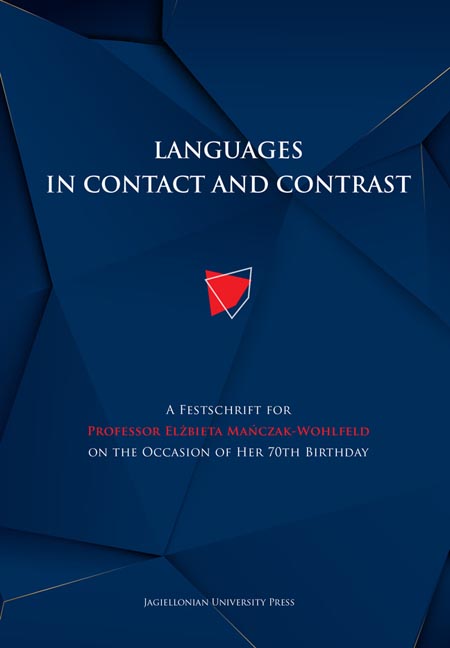 Languages in Contact and Contrast
Languages in Contact and Contrast Published online by Cambridge University Press: 14 October 2023
Rationale
The German theologian and Hebraist Johann Buxtorf der Ältere (1564–1629) was the first commentator to inform European readers that the Karaims read the Bible in a translation into a Turkic vernacular written in Hebrew script. Buxtorf mentions this fact in the second, posthumous edition of his Bibliotheca Rabbinica printed in 1640, in the lexicon entry שחומ Chumaʃsh (the first edition of Bibliotheca Rabbinica f rom 1613 l acks t his entry), see Buxtorf (1640: 444–445). This work has only been very rarely cited in the scholarly literature: Buxtorf’s report was either not mentioned in works detailing the first references to the Karaim language and its Bible translations, or it was quoted after Schudt (1714: 208) who reported concisely, in German, what Johannes Buxtorf wrote in Latin – see, for instance, Zajączkowski (1939: 93), Szyszman (1952: 215, 218; 1957), Dubiński (1959 [1994]: 64) or Jankowski (2009; 2018). To a certain extent, however, this is understandable given that Buxtorf did not actually provide the reader with any Karaim linguistic samples. In fact, we know that he had never seen any written Karaim sources (see Szyszman 1952: 215).
The Swedish Orientalist Gustaf Peringer Lillieblad (1651–1710) was the first to document a passage written in Karaim. He presented the first three verses of the Torah in a letter dated 15 April 1691 addressed to the German Ethiopist Hiob Ludolf (1624–1704). The letter was published by Wilhelm Ernst Tentzel (1659–1707) in 1691 (Tentzel 1691: 572–575). The fate of the original correspondence remains unknown.
For a long time Peringer’s short passage was the oldest known text written in Western Karaim and it has justly received substantial attention in the scholarly literature, see, for instance, the works of Zajączkowski (1939: 90–99), Szyszman (1952: 228), Dubiński (1991: 219), Csató (2007: 191–192; 2008: 169) or Jankowski (2019: xii). It is still one of the oldest linguistic samples of Western Karaim: we know only of six other (17th-century) Western Karaim texts that are older than Peringer’s report.
To save this book to your Kindle, first ensure [email protected] is added to your Approved Personal Document E-mail List under your Personal Document Settings on the Manage Your Content and Devices page of your Amazon account. Then enter the ‘name’ part of your Kindle email address below. Find out more about saving to your Kindle.
Note you can select to save to either the @free.kindle.com or @kindle.com variations. ‘@free.kindle.com’ emails are free but can only be saved to your device when it is connected to wi-fi. ‘@kindle.com’ emails can be delivered even when you are not connected to wi-fi, but note that service fees apply.
Find out more about the Kindle Personal Document Service.
To save content items to your account, please confirm that you agree to abide by our usage policies. If this is the first time you use this feature, you will be asked to authorise Cambridge Core to connect with your account. Find out more about saving content to Dropbox.
To save content items to your account, please confirm that you agree to abide by our usage policies. If this is the first time you use this feature, you will be asked to authorise Cambridge Core to connect with your account. Find out more about saving content to Google Drive.